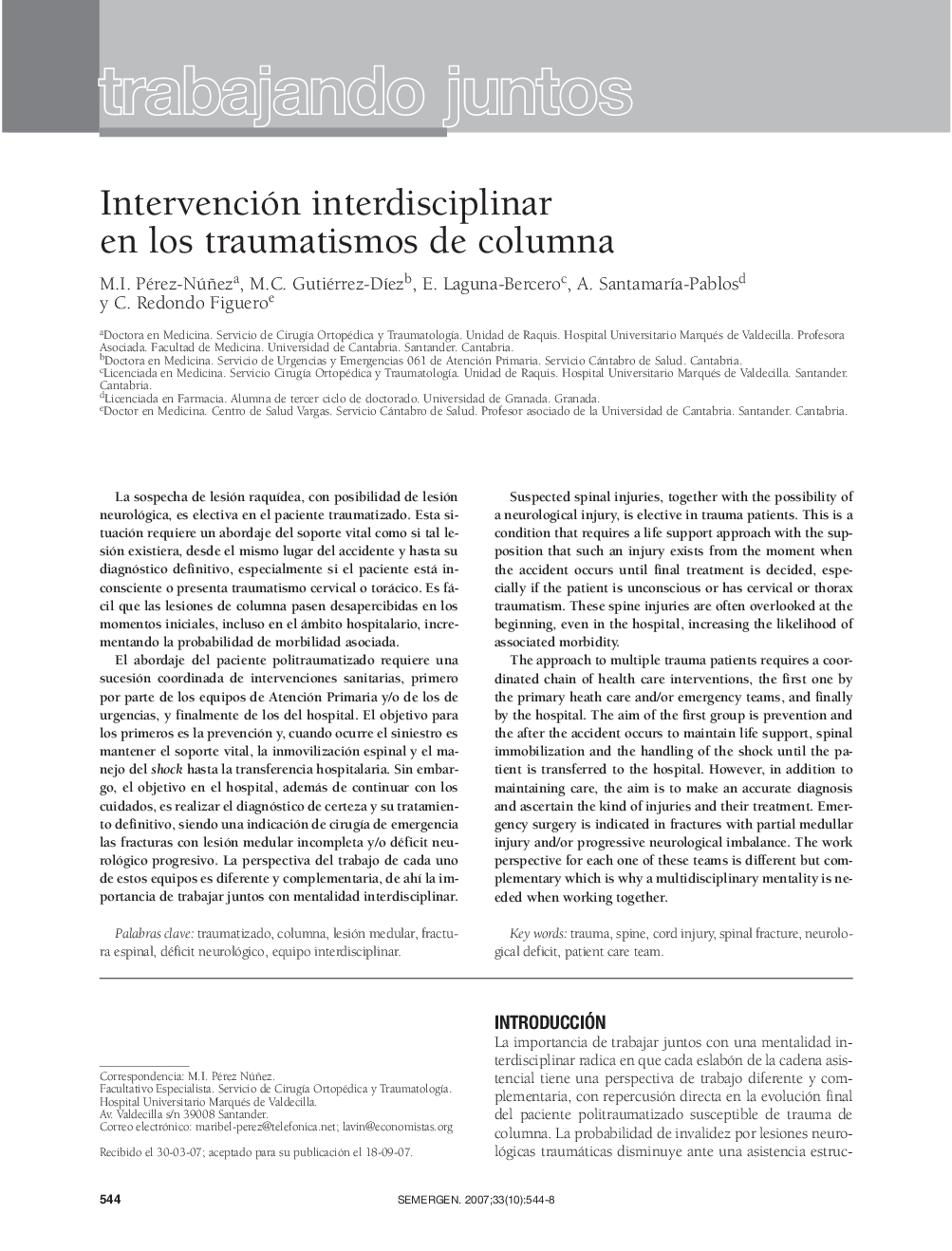| Article ID | Journal | Published Year | Pages | File Type |
|---|---|---|---|---|
| 3835962 | SEMERGEN - Medicina de Familia | 2007 | 5 Pages |
La sospecha de lesión raquÃdea, con posibilidad de lesion neurológica, es electiva en el paciente traumatizado. Esta situación requiere un abordaje del soporte vital como si tal lesion existiera, desde el mismo lugar del accidente y hasta su diagnóstico definitivo, especialmente si el paciente está inconsciente o presenta traumatismo cervical o torácico. Es fácil que las lesiones de columna pasen desapercibidas en los momentos iniciales, incluso en el ámbito hospitalario, incrementando la probabilidad de morbilidad asociada.El abordaje del paciente politraumatizado requiere una sucesión coordinada de intervenciones sanitarias, primero por parte de los equipos de Atención Primaria y/o de los de urgencias, y finalmente de los del hospital. El objetivo para los primeros es la prevención y, cuando ocurre el siniestro es mantener el soporte vital, la inmovilización espinal y el manejo del shock hasta la transferencia hospitalaria. Sin embargo, el objetivo en el hospital, además de continuar con los cuidados, es realizar el diagnóstico de certeza y su tratamiento definitivo, siendo una indicación de cirugÃa de emergencia las fracturas con lesión medular incompleta y/o déficit neurológico progresivo. La perspectiva del trabajo de cada uno de estos equipos es diferente y complementaria, de ahà la importancia de trabajar juntos con mentalidad interdisciplinar.
Suspected spinal injuries, together with the possibility of a neurological injury, is elective in trauma patients. This is a condition that requires a life support approach with the supposition that such an injury exists from the moment when the accident occurs until final treatment is decided, especially if the patient is unconscious or has cervical or thorax traumatism. These spine injuries are often overlooked at the beginning, even in the hospital, increasing the likelihood of associated morbidity.The approach to multiple trauma patients requires a coordinated chain of health care interventions, the first one by the primary heath care and/or emergency teams, and finally by the hospital. The aim of the first group is prevention and the after the accident occurs to maintain life support, spinal immobilization and the handling of the shock until the patient is transferred to the hospital. However, in addition to maintaining care, the aim is to make an accurate diagnosis and ascertain the kind of injuries and their treatment. Emergency surgery is indicated in fractures with partial medullar injury and/or progressive neurological imbalance. The work perspective for each one of these teams is different but complementary which is why a multidisciplinary mentality is needed when working together.
